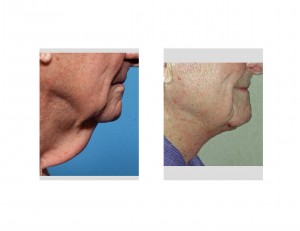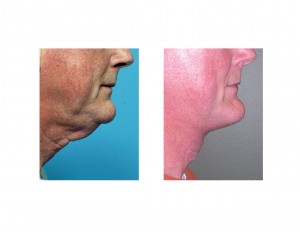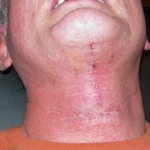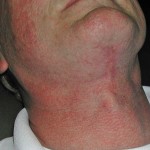
A traditional facelift for these neck problems, while very effective, is often unappealing for some men. Men are usually more concerned about the recovery from a facelift, where the scars would be, how it may affect their hairline, and the social stigmata of being recognized for having had their ‘faces lifted’.

The downside to a direct neck lift is that there is a midline scar running down the middle of the neck. The pertinent question becomes…what does this scar look like and how noticeable is it?
This is best answered by looking at actual pictures of scars. My Indianapolis plastic surgery practice experience indicates that for most men it can look surprisingly good. Besides good surgical technique and incision placement, the main reason is the unique healing quality of skin with beard hair. Men’s skin is thicker, more vascularized, and heals quicker due to contributions from the hair follicles. (which actually lie below the skin) The hair follicle is responsible for having an increased skin thickness and a better blood supply. Plus, men do a unique daily scar treatment after surgery….they shave. This is like having daily microdermabrasion scar treatments after the incision is fairly well healed. (men usually shave around it for a week or so and then directly over it thereafter)


Most men will develop some thickening of the neck scar just above the adam’s apple (thyroid cartilage) where the tension is greatest several months after surgery. For many men they do not feel that this is a problem. For others I treat it with some steroid injections or perform a small z-plasty in the office to relieve it.
Dr. Barry Eppley
Indianapolis, Indiana


